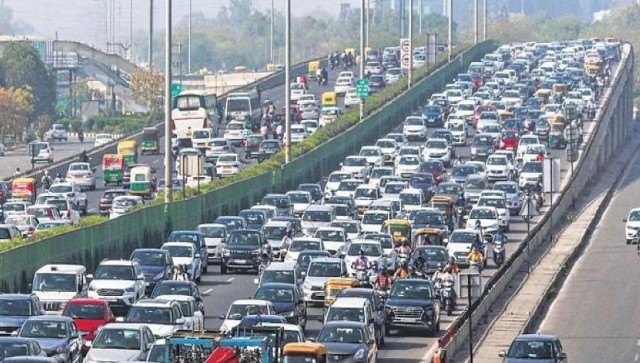By Asheeta Regidi
Karnataka is considering banning ride-sharing services like UberPool and Ola Share , on the grounds that the service is illegal. The final decision on the issue will be taken after meeting with the aggregators on Monday. Ride-sharing is a grey area under the law. Applicable laws have neither expressly permitted not prohibited it, making the issue a confusing one for aggregators. Given the benefits of ride-sharing, in terms of reduction in traffic congestion, pollution levels and lowered prices to the users, the government should consider legalising this service.
Karnataka laws silent on ride-sharing
Under Karnataka laws, aggregators are required to acquire a license under the Karnataka On-Demand Transportation Technology Aggregators Rules, 2016 . As per these rules, they are required to hold a ‘contract carriage permit’ issued under the Karnataka Motor Vehicles Rules, 1989. Both these rules, and also Form KMV 42, under which a ‘contract carriage permit’ is issued, do not contain any specific clauses prohibiting or permitting ride-sharing.
Of course, the Karnataka Transport Authority has the authority to attach further conditions, and the precise terms of the grant to services like Uber and Ola are not publicly known. The Karnataka Transport Minister has clarified that a contract carriage permit only allows point to point pick-ups and drop-offs. No customers can be picked up or dropped off in between rides, as happens in the case of ride-sharing services.
The result of this is that while ride-sharing services are not expressly illegal, the specific conditions under the contract carriage permits granted to Ola and Uber render it illegal.
Similar confusion seen with surge pricing
Ride-sharing isn’t the first grey area to have arisen under the aggregator regulations. Last year, a similar issue was seen on the issue of surge pricing, which was similarly neither expressly prohibited nor permitted under any of these rules. Finally, the stand taken by the Karnataka government and also the Delhi government by warning the aggregators against surge pricing laid the issue to rest. This makes the surge pricing clearly illegal in these states.
There was, however, better clarity on this issue in the laws, in terms of a prescription of the maximum fare that could be charged, and in some cases, a mandate to charge fares only at the rates fixed by the government. In the case of ride-sharing, however, even this basic clarity is missing.
Only non-commercial, private ride-sharing is legal under national laws
Ride-sharing on a non-commercial basis, i.e., between private persons, and not for a charge, is legal under national laws like the Motor Vehicles Act, 1988, and the rules issued thereunder. However, these rules again remain silent on commercial ride-sharing services like that done by UberPool and Ola Share. Similarly, the advisory for the regulation of aggregators issued by the Ministry of Road Transport and Highways issued in October 2015 is also silent on this.
Other states’ stand on ride-sharing is not clarified
Apart from Karnataka, other state-level aggregator regulations in India, Delhi’s City Taxi Scheme 2015 and the Maharashtra City Taxi Rules, 2016 are also silent on the issue of ride-sharing.
Again, in the absence of any clarity under the law, one has to turn to the stand taken by the state governments on the issue. Unlike in the case of surge pricing, the Delhi government has so far not taken any stand on the legality of commercial ride-sharing. Similarly, even the Maharashtra government has not taken any stand.
One indication of the state government’s attitude towards ride-sharing is the recommendation made by the Delhi Chief Minister in support of carpooling during the famous Odd-Even scheme implemented in Delhi to fight pollution levels. While this recommendation certainly does not lend legality to ride-sharing in Delhi, it indicates that the government may be more supportive of it.
Governments should consider the benefits of ride-sharing
Considering the increasing pollution and traffic congestion levels in city, ride-sharing may prove to be an excellent solution. The benefits to the environment as well as to the people in terms of cheaper transportation is unquestionable. Uber, for example, claims that the use of its ride-sharing service UberPool has saved around 4,40,623 litres of fuel and over 10,37,000 kg of carbon emissions . The question of safety does remain, but this can be addressed by issuing suitable rules.
Even abroad, many countries have begun to legalize ride-sharing. For example, ride-sharing services have been legalised in Australia, Pennsylvania and California . In France, only drivers with commercial licenses are allowed to operate ride-sharing services. The Karnataka government has stated that it will consult with the aggregators before imposing a complete ban on the ride-sharing services. It is hoped that the Karnataka government, and other state governments, will take the benefits of ride-sharing into consideration and legalize ride-sharing services in India.
The author is a lawyer with a specialisation in cyber laws and has co-authored books on the subject.


)




)
)
)
)
)
)
)
)